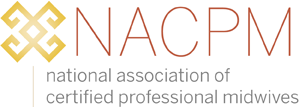Lessons Learned from Designing and Implementing an Undergraduate Mentorship Program
Thursday, December 12
3:00-4:30 ET
One of NACPM’s core commitments is investing in a strong, racially, ethnically and socially representative CPM workforce to meet the urgent needs of childbearing people in our country. In partial fulfillment of this goal, we are pleased to bring you Lessons Learned from Designing and Implementing an Undergraduate Mentorship Program. This webinar is both the 8th in our Equity, Race and Access to Midwifery Series, and the first in NACPM’s new Education in Midwifery Series. Drs. Keisha Goode and Ashlee Lien have important research to share with us from their mentorship program at the State University of New York College at Old Westbury that can apply to supporting increased representation in our midwifery training programs. Please join us !
Lessons Learned from Designing and Implementing an Undergraduate Mentorship Program
By Keisha Goode, PhD and Ashlee Lien, PhD
In addition to our roles as Professors, we are Co-Coordinators of the Research Aligned Mentorship (RAM) Program at the State University of New York (SUNY) College at Old Westbury. The RAM Program is funded by a Fund for the Improvement of Postsecondary Education (FIPSE) grant awarded by the United States Department of Education. The RAM Program is collaboratively administered among five universities: Farmingdale State College, Bowie State University, Central Connecticut State University, Kean University, and SUNY Old Westbury.
In each of the Fall 2016, Fall 2017 and Fall 2018 semesters, 100-115 incoming first year students at Old Westbury were selected into the program by lottery. The Program is designed to provide each cohort of students, regardless of major, with exclusive supports to improve retention and graduation rates. Some of the program benefits include priority registration; customized workshops; and, supports for the completion of an applied learning experience opportunity which may include independent research with a faculty sponsor, an on- or off-campus internship, a global learning opportunity, an addendum to an applied learning course within the major or an interdisciplinary learning experience on campus. The most effective program element we have identified thus far, however, is mentoring in which each RAM student is matched with a faculty or staff member to provide social support and leadership development throughout their undergraduate experience. The role of the mentor is not to be an academic advisor (students have designated academic advisors on campus) but instead is to be, as we like to call it, “their person” on campus.
For incoming first year students, having a mentor has a positive impact on adjustment to college and academic success throughout the student’s college years (Phinney, Campos, Kallemeyn, & Kim, 2011; Hurd, Tan, & Loeb, 2016). To assess the effectiveness of the mentoring aspect of the RAM program, current RAM students were asked to participate in focus groups about their experience in the program. Research team members held three focus groups during the Fall 2018 semester.
In this webinar, we, along with one of the research team members, Rhayna Prado, look forward to sharing more about the lessons we learned from the various strategies we used over the years to match faculty/staff mentors with students, along with sharing some of the findings from the focus group research.
This academic year is the last year of the program’s funding. Many of our first cohort will be graduating in May 2020, and we are very proud of them. This webinar is an important opportunity for us to reflect on our experience and candidly share with you so that the midwifery community may continue the work of brainstorming, researching and implementing mentoring programs for midwives. Mentoring is essential to NACPM’s commitments to growing the CPM workforce and investing in one that is racially, ethnically and socially representative to meet the needs of childbearing people.
We look forward to sharing with you on Thursday, December 12, from 3-4:30pm EST.
Equity and Education Resources: Mentorship and Beyond
Equity in Midwifery Education provides a rich array of resources with an equity focus: power and privilege are taken into account so that school and clinic climates can better support the learning of all students.
NACPM Archived Webinar ~ Diversity Matters: What Are Our Challenges
Keisha Goode, PhD, and Nancy Anderson, MD, MPH, will discuss the barriers to attaining a representative midwifery profession and the positive impact that a truly representative midwifery workforce could have on health inequities. They report on their landmark research, designed to reveal the experiences of contemporary black midwives and students in midwifery education programs, practice settings, and professional associations. Their important findings and recommendations are a call for action for all midwives.
